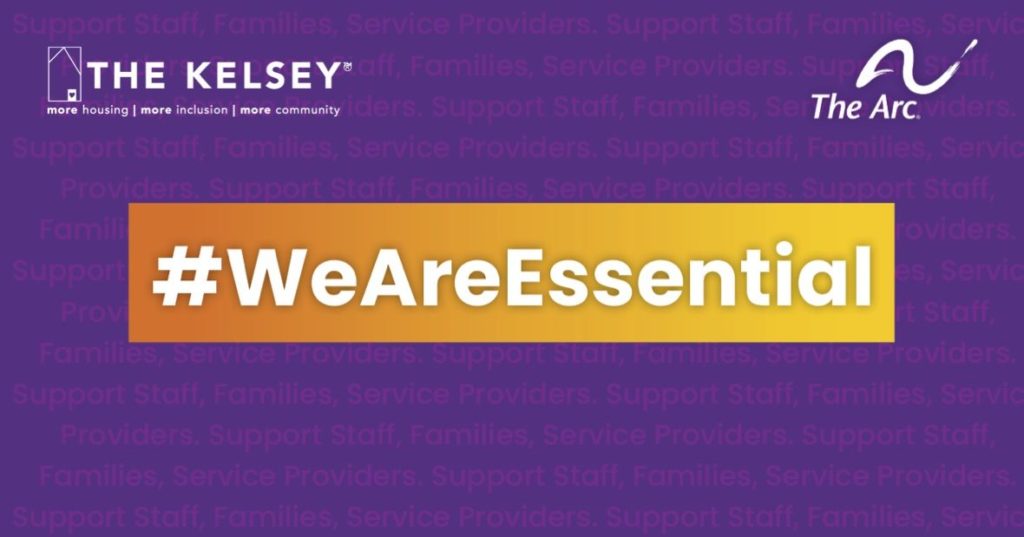
Grounded in our mission and values, The Kelsey is joining a national cross-disability campaign to ensure that COVID-19 response and recovery efforts are inclusive to people with disabilities.
This week especially, we focus on COVID-19 and HCBS, also known as home and community based services (More about HCBS at the end of this.). People with disabilities, families, and workers who provide HCBS, are in great distress during the COVID-19 pandemic because millions of Americans can only survive through in-person supports, such as personal attendant services, supported living, caregiving, respite, etc. In California, there are millions of people with disabilities, older adults, families, and workers whose health, safety, and ability to thrive is intrinsically linked to access to HCBS, including in-home supportive services and regional center services.
Unfortunately, the COVID-19 stimulus bills passed by Congress so far do not address stimulus funds or emergency situations for people with disabilities who require HCBS. Without additional resources, older adults and people with disabilities will be at even higher risk of being forced out of their homes and communities and into congregate settings, at risk to their health and in violation of their rights under the Americans with Disabilities Act (ADA) and the Supreme Court’s decision in Olmstead v. L.C. HCBS is the bedrock of building and sustaining inclusive communities, including affordable, accessible, and integrated housing.
The Kelsey is proud to join colleagues and allies across the country to demand that #WeAreEssential– that the next COVID19 stimulus bill must include funding for HCBS in Medicaid. Meaningful investments in HCBS are one of the most important steps Congress can take to safeguard the disability community and the direct care workforce.
Join us in this advocacy!
Find out more at Disability Community Asks for COVID-19 Legislation
Check out The Arc’s NEW #WeAreEssential Campaign Toolkit – Include the Disability Community in Pandemic Response Legislation
You can:
- Share this campaign throughout your networks!
- Call Congress
- Email Congress
- Tweet Congress use the hashtag #WeAreEssential
The full range of services and supports that encompass HCBS
- People with disabilities may rely on someone coming to their home to support them with daily personal care (getting them out of bed, showered, clothed, fed, etc.)
- Those who provide direct support or personal care may also be juggling their own families and multiple consumers/clients
- People with disabilities who access direct support professionals take them to the grocery store, or who depend on other daily routines outside the home that are now disrupted
- People with disabilities who have spent a lot of time investing in training one or a few support staff, and who may suddenly find themselves without the support they trust, or with whom they can communicate effectively with
- Lack of stability caused by possible lost wages when HCBS workers are sick or cannot otherwise perform their jobs